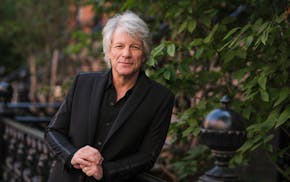Heartland
By Sarah Smarsh. (Scribner, 304 pages, $26.)
The subtitle of Sarah Smarsh's "Heartland" is "A Memoir of Working Hard and Being Broke in the Richest Country on Earth." Her timing is impeccable, given the country's growing divide around class. Her goal is nothing less than disputing the belief that some people — specifically "white trash" — are just meant to be, that the bad choices they make regarding sex or alcohol or jobs or education are, well, practically in their DNA and not the result of cultural forces.
She writes of her family, fifth-generation wheat farmers in Kansas on her dad's side, a legacy of teenage pregnancies on her mom's side. In the United States, she writes, "the shaming of the poor is a unique form of bigotry" that has less to do with race or gender than with "what your actions have failed to accomplish — financial success within capitalism — and the related implications about your worth in a supposed meritocracy." Successful white people denigrate poor white people for their failure to succeed as they have, she contends. In other words, without race as an excuse, impoverished white people are victims of their own bad choices. And there's not much anyone can do about that, eh?
This is a provocative, well-researched book for our times. Yet one nit: Smarsh sets up this book as a note to an imaginary daughter, a childhood creation who shaped many of Smarsh's own smart decisions by prompting her to think, "What would I tell my daughter to do?" Good tactic. Except that the resulting random sentences addressed to "you" always come as a surprise, the reader not being steeped in her life-altering experience.
Smarsh does bring her insistence on maintaining this trope to a decent explanation in her final pages, but by that time it all seems a little labored.
Importantly, she acknowledges that her own success as a university professor risks undermining her message that many decisions are taken out of the hands of "white trash" who would otherwise make other choices if they could. She says people often ask, "How did you get out?" Her answer: "Mine isn't a story about a destination that was reached but rather about sacrifices I don't believe anyone, certainly no child, should ever have to make." Which is about the only thing she can say. This is a difficult, but illuminating, book for these class-riven times.
KIM ODE
Miss Kopp Just Won't Quit By Amy Stewart. (Houghton Mifflin Harcourt, 309 pages, $26.)
The fourth, funniest and best of the Miss Kopp books finds Constance Kopp at a crossroads. It's the eve of the 1916 elections and the first female deputy in Hackensack, N.J., may be out of a job, since her supportive boss is running for national office and his likely successor can't stand her. While she waits for the results of the election, though, she keeps busy with a baffling case: A man has had his wife committed to an "insane asylum" for the fourth time, despite overwhelming evidence of her sanity. What gives?
The answer, as in most of Kopp's cases, is that the wife has the misfortune of living in a time when men make all the decisions. A feminist before the word was widely used, Kopp does what she can to ease the lives of the women in the Bergen County jail, most of whom are there because they're poor or depressed, while fulfilling her deputy duties as capably as her male colleagues. Here she is, for instance, when a convict makes a break for it in the opening pages: "I did what any officer of the law would do: I tucked my handbag under my arm, gathered my skirts in my hands, and ran him down."
Kopp's first-person account is wry and un-self-pitying, despite the long odds she faces both at the job and at home, where her quirky sisters are after her to bring home more money and less notoriety. The novel is more interested in characters than plot but it's great fun — fans of the Maisie Dobbs series will love it — and a timely reminder that women have been fighting the equity battle for generations.
CHRIS HEWITT
Complex stories of migration are among the finalists for the Women's Prize for Fiction
Olympian Kristi Yamaguchi is 'tickled pink' to inspire a Barbie doll

After 4 decades in music and major vocal surgery, Jon Bon Jovi is optimistic and still rocking
Rom-com author Emily Henry knows the secret to having a healthy relationship with love

